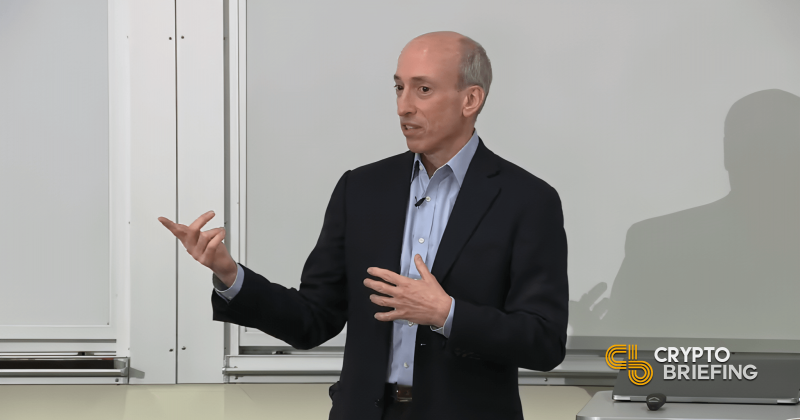Key takeaways
- Gensler suggests that BNY Mellon’s crypto custody model could apply to various digital assets.
- The cryptocurrency custody market is growing rapidly and banks are poised to benefit from secure and regulated services.
Share this article
In comments At Bloomberg today, SEC Chairman Gary Gensler discussed BNY Mellon’s crypto custody structure. He suggested that the model used for Bitcoin and Ether ETFs could be applied to other digital assets.
Although the current approval only applies to Bitcoin and Ether ETFs, Gensler noted that the custody structure is not limited to specific crypto assets.
“While the actual consultation was for two crypto assets, the structure itself was not dependent on what the crypto was, whatever that was.” Gensler said.
BNY Mellon now has the ability to expand its custody services to other digital assets if it wishes. Gensler emphasized that the “no objection” is based on the structure itself, not the type of crypto asset, allowing other banks to adopt the same crypto custody model.
Approval is contingent on BNY’s use of individual crypto wallets, ensuring that customer assets are protected and separated from the bank’s own assets in the event of insolvency. This portfolio structure was developed in consultation with the SEC’s Office of the Chief Accountant, leading to the agency’s “no objection” decision.
This approval ensures that the bank’s approach complies with regulatory requirements, preventing client assets from being at risk in the event of bankruptcy, a key issue that has plagued crypto platforms like Celsius, FTX and Voyager.
The cryptocurrency custody market, estimated at $300 million and growing 30% per year, represents a lucrative opportunity for financial institutions. With non-bank providers typically charging much higher fees for custody of digital assets than traditional assets, banks like BNY Mellon are well-positioned to capitalize on this growing demand by offering more secure and regulated solutions.
Share this article

